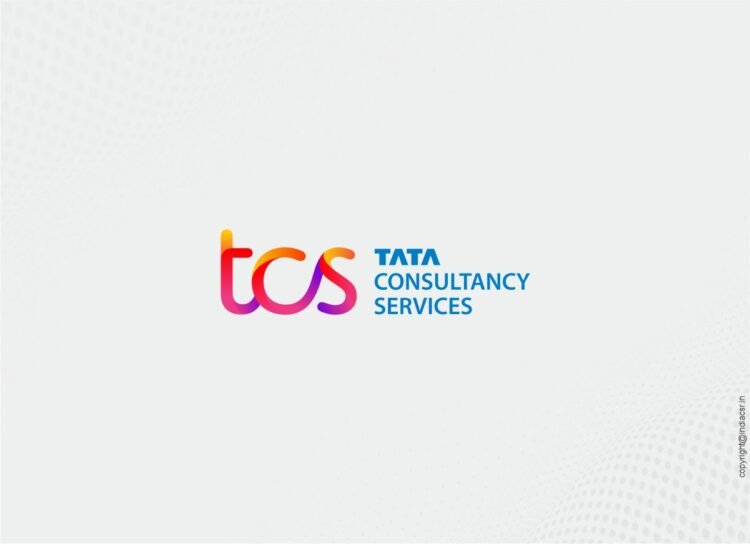In FY 2023-24, TCS’s total R&D expenditure rose to Rs 2,751 crore, marking a 10% increase from the Rs 2,500 crore spent in FY 2022-23.
NEW DELHI (India CSR): Tata Consultancy Services (TCS), a global leader in IT services, has ramped up its investments in research, development, and capital expenditure to enhance the environmental and social impacts of its products and processes. For the fiscal years 2023-24 and 2022-23, TCS reported significant expenditures aimed at driving sustainable innovation and infrastructure improvements. In FY 2023-24, the tech leaders’s total R&D expenditure rose to Rs 2,751 crore, marking a 10% increase from the Rs 2,500 crore spent in FY 2022-23.
Boost in R&D Expenditure
Sustainable Solutions
In FY 2023-24, TCS’s total R&D expenditure rose to Rs 2,751 crore, marking a 10% increase from the Rs 2,500 crore spent in FY 2022-23. This investment, constituting 1.1% of the company’s turnover, has led to the development of innovative solutions such as Envirozone™, Clever Energy, and IP2™. These solutions are designed to help reduce energy consumption and promote sustainability among TCS’s clients. Clever Energy, in particular, has been instrumental in monitoring and reducing TCS’s energy consumption over the past several years and is now commercially available to clients aiming to achieve their sustainability goals.
Capital Expenditure Focus
While TCS’s total capex saw a slight decrease from Rs 3,063 crore in FY 2022-23 to Rs 2,650 crore in FY 2023-24, the focus remained on infrastructure investments that promote energy efficiency and environmental initiatives. These capital investments, which accounted for 1.1% of turnover in FY 2023-24 compared to 1.4% the previous year, underline TCS’s commitment to sustainable growth.
Percentage of R&D and Capital Expenditure (Capex) Investments in Specific Technologies to Improve Environmental and Social Impacts
| Total R&D Expenditure | 2,751 (1.1% of Turnover) | 2,500 (1.1% of Turnover) | Solutions like Envirozone™, Clever Energy, and IP2™ to monitor and reduce energy consumption, commercially available to clients. |
| Total Capex | 2,650 (1.1% of Turnover) | 3,063 (1.4% of Turnover) | Investments in infrastructure, energy efficiency, and environmental initiatives. |
Detailed R&D and Innovation Spending
Breakdown of Expenditures
TCS’s R&D and innovation expenses are divided into capital and recurring expenditures. In FY 2023-24, capital expenditure on R&D stood at Rs 8 crore, with recurring expenses amounting to Rs 426 crore on a consolidated basis. Innovation center expenditures were significant, with Rs 2,317 crore spent in FY 2023-24 compared to Rs 2,119 crore in the previous year. This brings the total R&D and innovation expenditure to Rs 2,751 crore, reflecting a focused effort on maintaining a robust innovation pipeline.
Impactful Research Initiatives
TCS’s research efforts have not only benefited its customers but also the wider research community and society at large. The company has been at the forefront of exploring cutting-edge technologies, particularly in the realm of artificial intelligence (AI) and large language models (LLMs). TCS has delved into generative AI applications for scientific and engineering purposes, transforming knowledge work, and reimagining user engagement across various domains.

Advanced Technological Innovations
Generative AI and Material Science
One of TCS’s key research areas involves using generative AI to identify new drug molecules and design alloys and materials. This approach has streamlined the evaluation process for ease of synthesis and manufacturing, demonstrating the potential of AI to revolutionize material science.
“TCS’ investments in research and innovation have resulted in solutions like Envirozone™, Clever Energy and IP2™.,” said TCS annual report.
Expenditure Incurred in the R&D and Innovation Centers of TCS During FY 2024 and FY 2023 (Rs crore)
| Total R&D Expenditure | 427 | 376 | 434 | 381 |
| Innovation Center Expenditure | 2,228 | 2,048 | 2,317 | 2,119 |
| Total R&D and Innovation Expenditure | 2,655 | 2,424 | 2,751 | 2,500 |
| R&D and Innovation Expenditure as a Percentage of Total Turnover | 1.3% | 1.3% | 1.1% | 1.1% |
Enterprise Digital Twins and Robotics
TCS’s work on enterprise digital twins has seen accelerated growth, driven by increasing industry interest and adoption. These digital twins offer a virtual replica of physical systems, providing valuable insights for optimizing operations. Additionally, TCS’s investments in robotics have led to partnerships with major accelerators like the National Robotarium in the UK and MassRobotics in the US. These collaborations aim to advance the capabilities of robotics in various industries.
Software Innovations
TCS’s software research teams have continued to focus on self-healing and adaptive model-driven software architectures. These systems are designed to seamlessly adapt to changes and uncertainties, enhancing the resilience and efficiency of software applications.
“TCS Research continued to expand its foundational research in computing and its intersection with the sciences with an emphasis on AI, especially Large Language Models (LLM).”
Foundation Research and Future Technologies
Expanding Horizons
TCS remains committed to foundational research in areas like quantum computing, neuromorphic computing, and post-quantum cryptography. These technologies hold promise for future applications in finance, healthcare, and wireless communication. TCS’s exploration of meta-material based reconfigurable intelligent surfaces for 6G wireless systems exemplifies its forward-looking approach.
“The software research teams continued with their focus on self-healing and adaptive model-driven software architecture, adapting to changes and uncertainties seamlessly.”
Innovation for Healthcare
TCS’s innovative efforts extend to healthcare, with research focused on digital twins for the human heart and brain, and nano-sensing technologies for the Internet of Things (IoT). These advancements aim to provide better diagnostic tools and treatments, improving patient outcomes. “
(India CSR)







